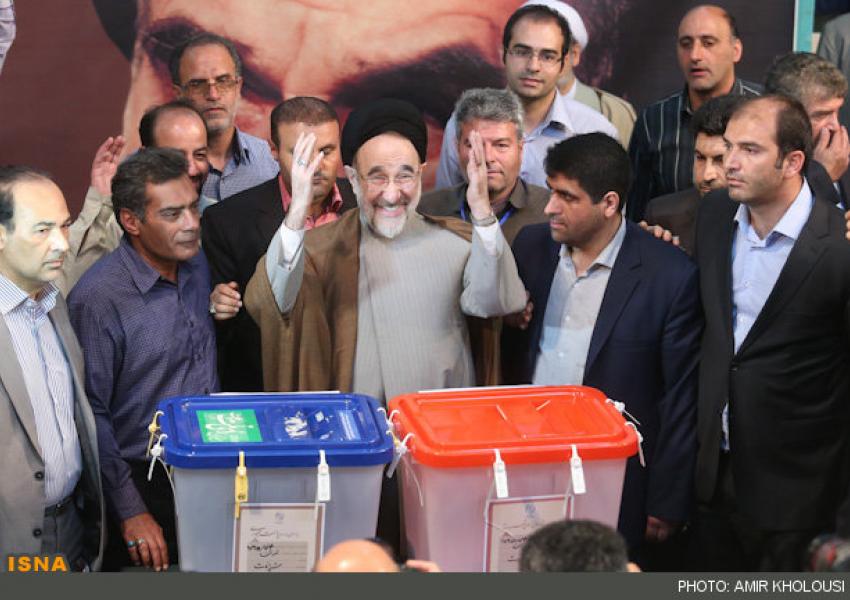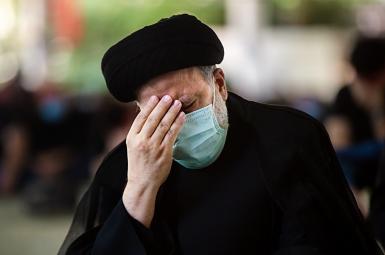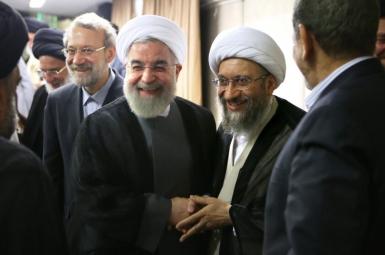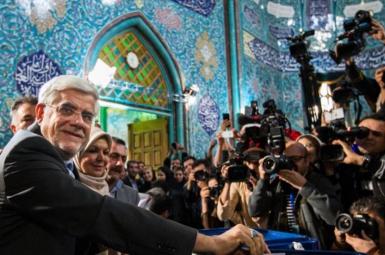
Iran's Reform Camp Abandoned By Voters, Shunned By The System
Hossein Kamali, a mid-ranking reform front figure in Iran says there is no point in holding Iran's upcoming presidential election in June if the Guardian Council, a hardliner-dominated body that vets election candidates, refuses to endorse reformists' candidate for the Presidential election in June.
The reformists had said the same before the February 2020 parliamentary election and threatened to boycott the election altogether but finally a few small factions nominated several candidates who failed to win enough votes to make it to the parliament.
The Guardian Council barred most of the reformist politicians with any public support from running as candidates. The same is expected this time as conservatives and hardliners are poised to capture the presidency.
Many Iranian analysts have said that the reformists have lost their political standing and the voters' support due to the failure of President Hassan Rouhani and the former Reformist dominated parliament in bringing about any reforms in Iran. On the contrary, both the economic and human rights took a turn for the worse since 2017.
Another reason for Iranian reformists' concern is the general disillusionment about the impact of elections. The disillusionment led to the lowest turnout figures in the history of the Islamic Republic in the 2020 parliamentary election.
Nonetheless, Kamali said in an interview with conservative website Khabar Online on March 11 that the reformists will take part in the election only if there is a chance for competition their candidate to compete with the conservatives.
Khabar online told Kamali that reformist figure Mohammad Reza Aref, who is generally accused of bringing about a defeat for reformists because of his silence and inaction as the leader of Iran's reformists in the previous Majles, is going to take part in the election as an ‘independent’ candidate. Kamali said he was not aware of that, however, he noted that Aref was no longer a member of the reform front.
Before the Majles election in 2020, high profile figures of the reform camp such as Vice President Es’haq Jahangiri and former lawmaker Majid Ansari met with Iran's Supreme Leader Ali Khamenei to facilitate reformists participation in the election, but those meetings lead no tangible result and Ansari who was one of the reform candidates lost the election, bringing about embarrassment for reformists.
Kamali however said that reformist figures will continue lobbying with Khamemnei and other hardliners. Apparently former reformist President Mohammad Khatami's 37-page letter to Khamenei was one of those attempts. Khamenei ignored Khatami's plea although as kamali said, no one knows what the letter said. Nevertheless, Kamali said: "Interacting is a good idea anyway."
Kamali agreed with Khabar Online that the people are not happy with the country's situation, but said the unhappiness is about the performance of both the reformist and conservative factions. "They are unhappy about the general management of the country," he said, adding that "lack of political participation by the people is a threat to the regime's security. So, we would like to as all those who are interested in the fate of the country to think of maximum participation and having an election with a high turnout."
Last year’s parliamentary election had the lowest turnout in the Islamic Republic’s history, with less than 40 percent participation. Some candidates got into parliament with just 10,000 votes. Reformists argue that if they are not allowed to field a serious candidate, the low turnout will be repeated in June, further undermining the regime’s legitimacy.
In what appeared to be his final say, Kamali added: "If the decision on who wins the election has been already made, then there is no point on spending money on the election. The campaigning budgets could instead be spend to feed the underprivileged," he said.







